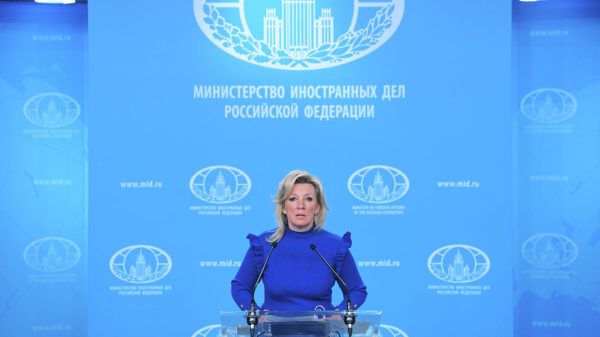
Police officers wait in line to receive the AstraZeneca Covid-19 vaccination in Italy
Credit: Simona Granati /Corbis News
The Oxford-AstraZeneca coronavirus is running into public resistance in several European countries, amid reports of side effects and concerns it may not be as effective against some of the newer variants.
Health authorities in Germany say many people say they would prefer to wait for one of the rival vaccines, while medical staff in France and Italy have reportedly been trying to avoid the AstraZeneca jab.
There are widespread reports of people suffering side effects including fever and headaches from the vaccine, although health authorities say they are not dangerous.
In the German city of Dortmund, a quarter of firefighters called in sick after being given the jab, while authorities in France are investigating after nurses experienced “intense flu-like symptoms”.
Hospitals in both France and Germany have announced plans to stagger vaccinations to avoid too many staff calling in sick at once.
The French health minister was photographed being given an AstraZeneca jab and the German health minister and chief government adviser on the pandemic have both publicly said they would take it in a bid to boost public confidence.
But German authorities have so far been able to administer only 19 per cent of their AstraZeneca stocks, compared to 85 per cent of the Pfizer vaccine and 63 per cent of Moderna.
Read more: From transmission to efficacy, the Oxford, Pfizer and other Covid vaccines compared
Health workers are currently the main recipients of the AstraZeneca vaccine in Germany, France and Italy, where it is not approved for over-65s because of a lack of data.
But many have expressed anger at being given what they see as a less effective vaccine.
“How come they even vaccinated hospital gardeners with more efficient vaccines while us doctors, who risk infection every day or risk infecting others, get offered something less efficient?” asked one Italian doctor quoted in La Stampa.
The situation has been further complicated by calls to stop using the AstraZeneca vaccine in areas of eastern France that have seen an outbreak of the Brazilian and South African mutations of the virus.
Alain Fischer, a senior vaccine adviser to the French government, suggested at the weekend that health workers in the Moselle region should be given the Pfizer or Moderna vaccines as a “precautionary measure”.
Recent research suggests the AstraZeneca offers only “minimal protection” from mild or moderate courses of illness caused by the South African variant.
But there was better news for the AstraZeneca vaccine this week after Italy approved its used in people aged between 55 and 65. The country had previously limited its use to under-55s.

























































Свежие комментарии